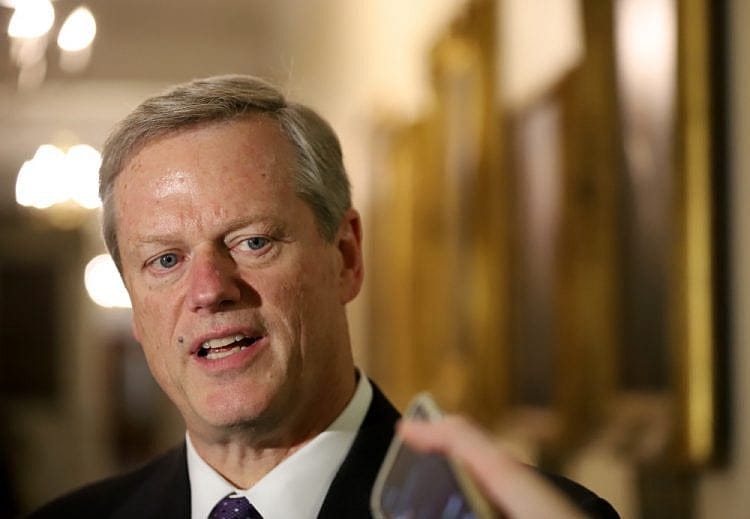Climate-Change Activists Like Baker’s Net-Zero Emissions Goal, But Skeptics Are Counting the Cost

During his State of the Commonwealth address on Tuesday night, Massachusetts Governor Charlie Baker set a lofty goal for net-zero carbon emissions in 30 years without a plan to do it. Reactions are mixed.
Baker's pledge is more ambitious than the one then-Governor Deval Patrick made in 2008. Patrick called for an 80 percent reduction by 2050, a goal set forth in the state's Global Warming Solutions Act of 2008.
